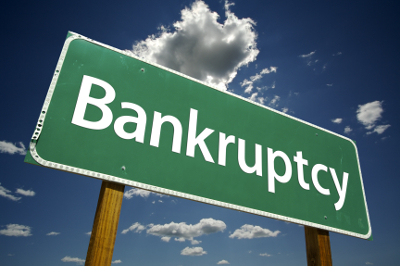by the bankruptcy lawyers in Phoenix at Ariano & Reppucci, PLLC
If you are in the position where you need to declare bankruptcy, that means you are in a tough financial spot. You are probably contemplating how to pay off your mounting debt and demanding creditors. The thought of your death and how it will affect your bankruptcy is probably not at the forefront of your mind. Nevertheless, it is important to be aware of any situation and its repercussions when it comes to your bankruptcy.
What happens to my bankruptcy if I die?
A lot depends on what type of bankruptcy you declared.
Chapter 7
In a Chapter 7 bankruptcy you can get rid of a lot of your debts quickly if you qualify. However, you will not be able to keep your non-exempt assets because they become part of the bankruptcy estate. The bankruptcy trustee is responsible for paying back creditors out of the bankruptcy estate. Thus, a debtor’s death usually does not affect the bankruptcy.1
Chapter 13
A Chapter 13 bankruptcy is a little longer, and you will probably be able to keep some more of your assets. You will make a court-approved repayment plan that can last about three to five years. This means that you have to be alive to make the payments, and if no payments are made then the case will be dismissed.2 However, if it is in the best interests of the parties to continue the case, the case could proceed and be concluded in the same manner as though the debtor did not die if that is possible.3 For example, the debtor could be married and could have filed the bankruptcy jointly. In this case the spouse would still be alive and the Chapter 13 bankruptcy should either be discharged for hardship (if possible), the repayment plan should be modified, the bankruptcy should be converted to a Chapter 7 bankruptcy, or the case should be bifurcated into two separate cases.4 Whether or not any of these things are possible depends a lot on the circumstances.
If I die, are my debts passed down to my heirs?
No. Your debts will not be passed down unless you had joint debts with your heirs.5 However, your death does not mean that creditors will not be able to look at your estate to satisfy your debts to them.6 If you filed for a Chapter 7 bankruptcy and then died, your heirs would probably be able to keep your exempt assets because those assets were never a part of the bankruptcy estate.7
If you are worried about what happens at your death after you have declared bankruptcy, it is best to contact an experienced Arizona bankruptcy attorney. Your attorney will be able to evaluate your unique situation and advise you about what will happen in the event of your death.
[1] Baran Bulkat, What Happens If A Bankruptcy Debtor Dies?, alllaw.com, http://www.alllaw.com/articles/nolo/bankruptcy/what-happens-debtor-dies.html (last visited Dec. 9, 2014).
2 Id.
3 Fed. R. Bankr. P. 1016 (1991).
4 John Hilla, Death During Bankruptcy: Will It Stop Chapter 7 Or 13?, hillalaw.com (May 16, 2013), http://hillalaw.com/death-during-bankruptcy-stop-chapter-7-13/.
5 Baran Bulkat, supra note 1.
6 Id.
7 See Richard Cole, Death During Bankruptcy, avvo.com, http://www.avvo.com/legal-guides/ugc/death-during-bankruptcy (last visited Dec. 9, 2014).


